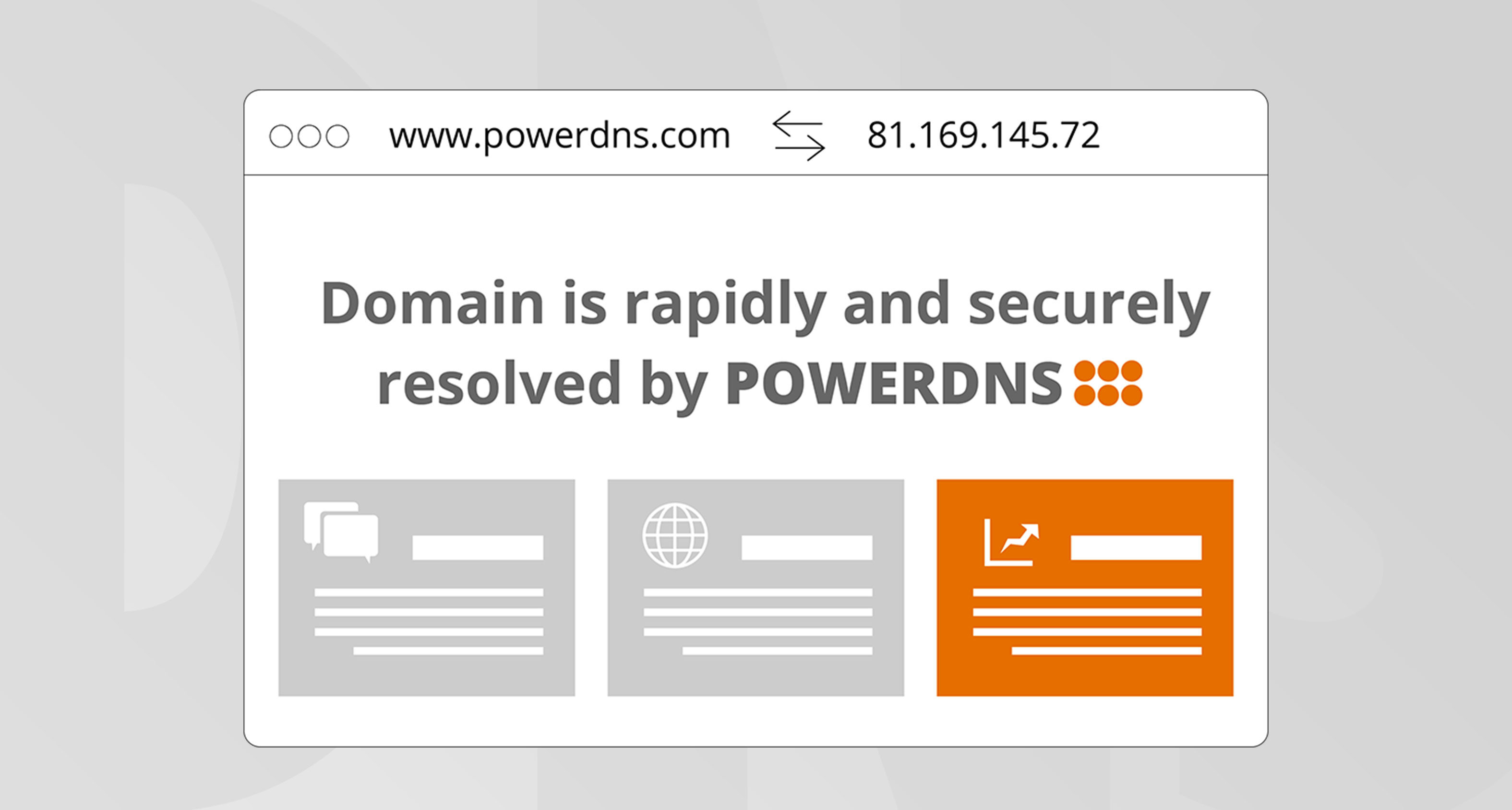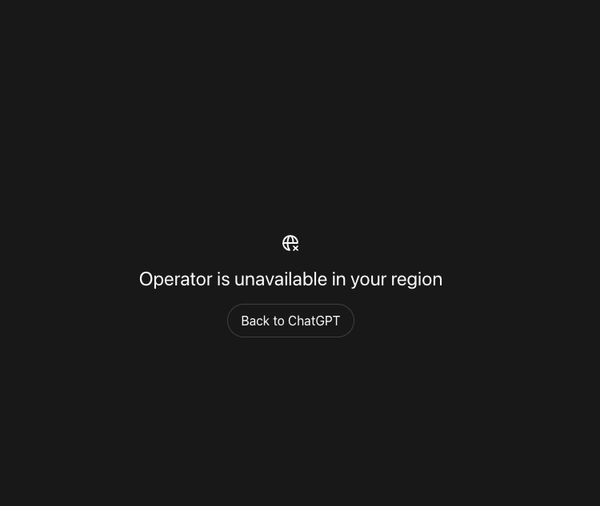12 Open-source Free DNS Servers for DevOps and Enterprise
Table of Content
A DNS server (Domain Name System server) is a system that translates human-readable domain names (like example.com) into IP addresses (like 192.0.2.1), which are used by computers to identify each other on a network.
DNS is essential for the functioning of the internet, as it allows users to access websites and services using easy-to-remember names instead of numeric IP addresses.
Benefits of DNS Servers
- Simplified Access: DNS servers make it easy for users to access websites using domain names instead of complex IP addresses.
- Load Distribution: DNS can distribute traffic across multiple servers, improving performance and availability.
- Security: DNS servers can provide security features like DNSSEC, which protects against certain types of attacks.
- Redundancy: DNS allows for multiple servers to be configured for a single domain, ensuring reliability and uptime.
- Efficient Network Management: DNS servers help in managing and organizing network resources, making it easier to update and maintain large networks.
- Caching: DNS servers cache queries, reducing the load on authoritative servers and speeding up the response time for frequently accessed domains.
These benefits make DNS servers a critical component of the internet’s infrastructure, ensuring efficient and reliable access to online resources.
Here’s a simple list of the best 12 open-source DNS servers:
1. BIND
BIND (Berkeley Internet Name Domain) is a complete, highly portable implementation of the Domain Name System (DNS) protocol.
The BIND name server, named, can act as an authoritative name server, recursive resolver, DNS forwarder, or all three simultaneously.
It implements views for split-horizon DNS, automatic DNSSEC zone signing and key management, catalog zones to facilitate provisioning of zone data throughout a name server constellation, response policy zones (RPZ) to protect clients from malicious data, response rate limiting (RRL) and recursive query limits to reduce distributed denial of service attacks, and many other advanced DNS features.
BIND also includes a suite of administrative tools, including the dig and delv DNS lookup tools, nsupdate for dynamic DNS zone updates, rndc for remote name server administration, and more.
BIND remains a critical component of the internet’s infrastructure, providing robust and flexible DNS services for networks of all sizes. Its extensive feature set and reliability make it a preferred choice for DNS administrators worldwide.
Features
- Authoritative DNS Server: BIND can act as an authoritative server for domains, providing definitive responses to DNS queries for those domains.
- Recursive DNS Server: BIND can also be configured as a recursive resolver, fetching DNS information from other servers on behalf of clients.
- DNSSEC Support: BIND supports DNS Security Extensions (DNSSEC), which adds a layer of security to DNS by allowing clients to verify the authenticity of the DNS data.
- Dynamic DNS (DDNS): BIND allows for dynamic updates, where DNS records can be updated in real-time without restarting the server.
- Access Control Lists (ACLs): BIND provides fine-grained access control, allowing administrators to specify which clients can query the server, make updates, or perform other actions.
- Views: This feature allows BIND to provide different DNS responses based on the client’s IP address, which is useful for implementing split-horizon DNS.
- Logging and Monitoring: BIND includes extensive logging and monitoring features, helping administrators track server performance and diagnose issues.
- Load Balancing: BIND supports load balancing features, including round-robin DNS, to distribute traffic across multiple servers.
- IPv6 Support: BIND fully supports IPv6, including the ability to serve IPv6 DNS records (AAAA records).
- Zone Transfers: BIND supports zone transfers (AXFR/IXFR) for replicating DNS data between multiple servers.

2. PowerDNS
PowerDNS is an advanced, high-performance DNS server software that is widely used in both enterprise environments and service provider networks. It is designed to be highly scalable, flexible, and capable of integrating with a variety of backends.
PowerDNS is open-source and offers both authoritative and recursive DNS solutions, making it a versatile choice for different DNS roles. It is known for its powerful configuration options, reliability, and extensive features that cater to modern DNS requirements.
PowerDNS is a robust and flexible DNS server solution that is well-suited for modern DevOps environments. Its combination of performance, scalability, and extensive feature set makes it an ideal choice for managing DNS services in complex and dynamic infrastructures.
Features
- Authoritative DNS Server
- Recursive DNS Resolver
- Flexible Backend Support (MySQL, PostgreSQL, SQLite, LDAP, etc.)
- DNSSEC Support
- High Availability and Scalability
- Advanced Query Logging and Monitoring
- API for Automation
- GeoDNS and Traffic Management
- Integration with External Systems
- DNS Caching
- Optimized Performance

3. Unbound
Unbound is a validating, recursive, and caching DNS resolver developed by NLnet Labs. It's designed for high performance and security, making it a popular choice for DNS resolution tasks.
Unbound operates as an open-source project, offering a lightweight and efficient solution for DNS lookups while ensuring privacy and integrity through features like DNSSEC validation.
It is widely used in both small and large-scale deployments, from personal devices to enterprise networks. The project is maintained by a community focused on security, privacy, and stability, making Unbound a reliable choice for modern DNS infrastructure.
4. NSD (Name Server Daemon)
NSD (Name Server Daemon) is an open-source authoritative DNS server developed by NLnet Labs. It is designed for high performance, security, and simplicity, making it ideal for serving DNS zones efficiently.
NSD is used in various environments, from small networks to large-scale internet infrastructures, where stability and reliability are critical. It focuses solely on authoritative DNS service without the added complexity of other DNS functions, ensuring it performs its role with speed and efficiency.

5. MaraDNS
MaraDNS is a lightweight, fe DNS server designed for simplicity, security, and ease of use. It provides both authoritative and recursive DNS services, making it versatile for various DNS tasks. MaraDNS is known for its small footprint, making it suitable for systems with limited resources.
It emphasizes security by default, with features like source code simplicity and minimal attack surface.
MaraDNS is well-suited for users who need a straightforward and secure DNS solution without the complexity of larger DNS servers.
6. CoreDNS
CoreDNS is a flexible, extensible, and high-performance DNS server that can serve as a DNS forwarder, authoritative server, or service discovery tool. It is written in Go and designed with a modular architecture, allowing users to extend its functionality with plugins easily.
CoreDNS is widely used in cloud-native environments, particularly in Kubernetes, where it acts as the default DNS server.
Its simplicity, scalability, and integration with modern infrastructure make CoreDNS a popular choice for managing DNS in dynamic and containerized environments.
Features
- Serve zone data from a file; both DNSSEC (NSEC only) and DNS are supported (file and auto).
- Retrieve zone data from primaries, i.e., act as a secondary server (AXFR only) (secondary).
- Sign zone data on-the-fly (dnssec).
- Load balancing of responses (loadbalance).
- Allow for zone transfers, i.e., act as a primary server (file + transfer).
- Automatically load zone files from disk (auto).
- Caching of DNS responses (cache).
- Use etcd as a backend (replacing SkyDNS) (etcd).
- Use k8s (kubernetes) as a backend (kubernetes).
- Serve as a proxy to forward queries to some other (recursive) nameserver (forward).
- Provide metrics (by using Prometheus) (prometheus).
- Provide query (log) and error (errors) logging.
- Integrate with cloud providers (route53).
- Support the CH class:
version.bindand friends (chaos). - Support the RFC 5001 DNS name server identifier (NSID) option (nsid).
- Profiling support (pprof).
- Rewrite queries (qtype, qclass and qname) (rewrite and template).
- Block ANY queries (any).
- Provide DNS64 IPv6 Translation (dns64).

7. Knot DNS
Knot DNS is a high-performance authoritative-only DNS server.
Features
- Authoritative DNS Server
- High-Performance and Scalability
- DNSSEC Support
- Zone Transfers and Incremental Zone Updates
- Efficient Memory Use
- Multi-Threaded Processing
- Dynamic DNS (DDNS) Support
- Modular Configuration with Profiles
- Remote Control via API
- Built-in DNS Tools (e.g., zone file editor, key manager)
- Support for DNS over TLS (DoT)
- Incremental AXFR and IXFR Support


8. djbdns
djbdns is a DNS software package created by Daniel J. Bernstein as a secure alternative to BIND, addressing repeated security vulnerabilities found in the latter. Bernstein was so confident in its security that he offered a $1000 reward for anyone who could find a security hole, which was claimed in 2009. Despite being released in 2001 and placed in the public domain in 2007, djbdns remains popular, especially its tinydns component, which was the second most widely used authoritative DNS server in 2004.
One of djbdns's notable strengths is its immunity to the widespread DNS cache poisoning vulnerability reported in 2008, though it was later found to be susceptible to a related attack. Since its release, the source code hasn't been centrally managed, leading to numerous forks and patches, including dbndns, a version maintained by the Debian Project.
Overall, djbdns is recognized for its security and efficiency, making it a notable choice for DNS servers despite its age and lack of centralized updates.
9. YADIFA
YADIFA is a lightweight authoritative Name Server with DNSSEC capabilities. Developed by the passionate people behind the .eu top-level domain, YADIFA has been built from scratch to face today’s DNS challenges, with no compromise on security, speed and stability, to offer a better and safer Internet experience.
10. dnsmasq
dnsmasq provides a DNS server, a DHCP server with support for DHCPv6 and PXE, and a TFTP server. It is designed to be lightweight and have a small footprint, suitable for resource constrained routers and firewalls. dnsmasq can also be configured to cache DNS queries for improved DNS lookup speeds to previously visited sites.
Features
- DNS Caching
- DHCP Server
- DNS Forwarding
- TFTP Server
- IPv6 Support
- DNSSEC Validation
- Dynamic DNS (DDNS)
- Integrated with Network Booting (PXE)
- Configurable Domain Assignment
- Small Footprint and Low Resource Usage

11. Technitium DNS Server
Technitium DNS Server is an open source authoritative as well as recursive DNS server that can be used for self hosting a DNS server for privacy & security. It works out-of-the-box with no or minimal configuration and provides a user friendly web console accessible using any modern web browser.
Technitium DNS Server provides a HTTP API which is used by the web console to perform all actions. Thus any action that the web console does can be performed using this API from your own applications.
12. CZNIC Knot Resolver
Knot Resolver is a high-performance, open-source DNS resolver developed by CZ.NIC. It is designed to be highly modular, allowing users to customize and extend its functionality with ease. Knot Resolver supports modern DNS protocols and provides advanced features for DNS resolution, making it a powerful tool for managing DNS queries in various environments.
Features
- Modular Architecture
- DNS-over-HTTPS (DoH) and DNS-over-TLS (DoT) Support
- DNSSEC Validation
- High Performance and Scalability
- Customizable Scripting with Lua
- Aggressive DNS Caching
- Support for DNS Forwarding
- Advanced Query Filtering
- Remote Configuration API
- Open-Source and Actively Maintained

These DNS servers are widely used for various purposes, from authoritative name servers to caching resolvers.


















